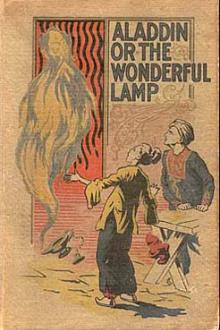The Yellow Claw by Sax Rohmer (best short novels txt) 📗

- Author: Sax Rohmer
Book online «The Yellow Claw by Sax Rohmer (best short novels txt) 📗». Author Sax Rohmer
“Keep her in sight,” shouted Rogers from the stern; “don't lose her for your lives!”
Stringer, at imminent peril of precipitating himself into the water, was craning out over the bows and staring until his eyes smarted.
“Don't you see her?” said one of the men on the lookout. “She carries no lights, of course, but you can just make out the streak of her wake.”
Harder, harder stared Stringer, and now a faint, lighter smudge in the blackness, ahead and below, proclaimed itself the wake of some rapidly traveling craft.
“I can hear her motor!” said another voice.
Stringer began, now, also to listen.
Muffled sirens were hooting dismally all about Limehouse Reach, and he knew that this random dash through the night was fraught with extreme danger, since this was a narrow and congested part of the great highway. But, listen as he might, he could not detect the sounds referred to.
The brazen roar of a big steamer's siren rose up before them. Rogers turned the head of the cutter sharply to starboard but did not slacken speed. The continuous roar grew deeper, grew louder.
“Sharp lookout there!” cried the inspector from the stern.
Suddenly over their bows uprose a black mass.
“My God!” cried Stringer, and fell back with upraised arms as if hoping to fend off that giant menace.
He lurched, as the cutter was again diverted sharply from its course, and must have fallen under the very bows of the oncoming liner, had not one of the lookouts caught him by the collar and jerked him sharply back into the boat.
A blaze of light burst out over them, and there were conflicting voices raised one in opposition to another. Above them all, even above the beating of the twin screws and the churning of the inky water, arose that of an officer from the bridge of the steamer.
“Where the flaming hell are YOU going?” inquired this stentorian voice; “haven't you got any blasted eyes and ears”...
High on the wash of the liner rode the police boat; down she plunged again, and began to roll perilously; up again—swimming it seemed upon frothing milk.
The clangor of bells, of voices, and of churning screws died, remote, astern.
“Damn close shave!” cried Rogers. “It must be clear ahead; they've just run into it.”
One of the men on the lookout in the bows, who had never departed from his duty for an instant throughout this frightful commotion, now reported:
“Cutter crossing our bow, sir! Getting back to her course.”
“Keep her in view,” roared Rogers.
“Port, sir!”
“How's that?”
“Starboard, easy!”
“Keep her in view!”
“As she is, sir!”
Again they settled down to the pursuit, and it began to dawn upon Stringer's mind that the boat ahead must be engined identically with that of the police; for whilst they certainly gained nothing upon her, neither did they lose.
“Try a hail,” cried Rogers from the stern. “We may be chasing the wrong boat!”
“Cutter 'hoy!” bellowed the man beside Stringer, using his hands in lieu of a megaphone—“heave to!”
“Give 'em 'in the King's name!'” directed Rogers again.
“Cutter 'hoy,” roared the man through his trumpeted hands,—“heave to—in the King's name!”
Stringer glared through the fog, clutching at the shoulder of the shouter almost convulsively.
“Take no notice, sir,” reported the man.
“Then it's the gang!” cried Rogers from the stern; “and we haven't made a mistake. Where the blazes are we?”
“Well on the way to Blackwall Reach, sir,” answered someone. “Fog lifting ahead.”
“It's the rain that's doing it,” said the man beside Stringer.
Even as he spoke, a drop of rain fell upon the back of Stringer's hand. This was the prelude; then, with ever-increasing force, down came the rain in torrents, smearing out the fog from the atmosphere, as a painter, with a sponge, might wipe a color from his canvas. Long tails of yellow vapor, twining—twining—but always coiling downward, floated like snakes about them; and the oily waters of the Thames became pock-marked in the growing light.
Stringer now quite clearly discerned the quarry—a very rakish-looking motor cutter, painted black, and speeding seaward ahead of them. He quivered with excitement.
“Do you know the boat?” cried Rogers, addressing his crew in general.
“No, sir,” reported his second-in-command; “she's a stranger to me. They must have kept her hidden somewhere.” He turned and looked back into the group of faces, all directed toward the strange craft. “Do any of you know her?” he demanded.
A general shaking of heads proclaimed the negative.
“But she can shift,” said one of the men. “They must have been going slow through the fog; she's creeping up to ten or twelve knots now, I should reckon.”
“Your reckoning's a trifle out!” snapped Rogers, irritably, from the stern; “but she's certainly showing us her heels. Can't we put somebody ashore and have her cut off lower down?”
“While we're doing that,” cried Stringer, excitedly, “she would land somewhere and we should lose the gang!”
“That's right,” reluctantly agreed Rogers. “Can you see any of her people?”
Through the sheets of rain all peered eagerly.
“She seems to be pretty well loaded,” reported the man beside Stringer, “but I can't make her out very well.”
“Are we doing our damnedest?” inquired Rogers.
“We are, sir,” reported the engineer; “she hasn't got another oat in her!”
Rogers muttered something beneath his breath, and sat there glaring ahead at the boat ever gaining upon her pursuer.
“So long as we keep her in sight,” said Stringer, “our purpose is served. She can't land anybody.”
“At her present rate,” replied the man upon whose shoulders he was leaning, “she'll be out of sight by the time we get to Tilbury or she'll have hit a barge and gone to the bottom!”
“I'll eat my hat if I lose her!” declared Rogers angrily. “How the blazes they slipped away from the wharf beats me!”
“They didn't slip away from the wharf,” cried Stringer over his shoulder.





Comments (0)